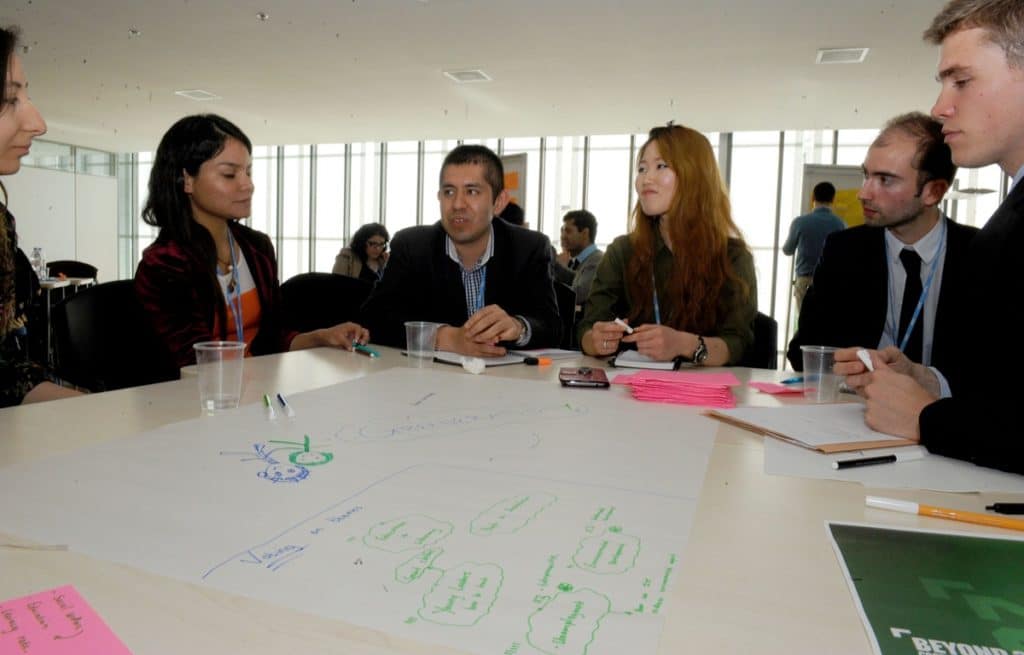The Millennial generation, defined as individuals born between 1981 and 1996, is a distinctive demographic that brings unique perspectives and expectations to the workplace. With their numbers reaching 72.1 million in 2019, surpassing Baby Boomers, they now form a significant portion of the workforce. Their digital savviness, preference for a strong work-life balance, desire for constant learning, and a drive for meaningful work distinguish them from previous generations.
Consequently, to attract and retain millennial workforce requires a unique approach tailored to their characteristics and preferences. This guide aims to equip organizations with strategies and practices to create an environment that not only appeals to millennials but also retains them, fostering loyalty and boosting productivity.
Understanding Millennials
Before diving into the strategies, it’s essential to understand what shapes the Millennial mindset. This generation is more diverse, more educated, and has a greater affinity for technology than those preceding it. They value meaningful work and prefer companies that align with their personal values, often prioritizing purpose over paycheck. Flexibility, continuous learning, and advancement opportunities also factor into their decision to join and stay with a company.

1. Emphasize Purpose over Paycheck
To align with the millennial’s need for meaningful work, companies need to portray themselves as purpose-driven. Employers should not only have a clear, compelling mission but also communicate it consistently to their employees. Involve your workforce in strategy meetings and company-wide initiatives, so they see firsthand how their work contributes to the organization’s broader goals.
Highlight stories of how your organization has made a positive impact on the community or society. Emphasize the role of each individual in achieving these goals to make them feel connected to the cause.
Millennials want to make a difference in the world and they want to work for companies that are doing the same. Employers should communicate the impact of their work, whether it’s in terms of societal benefits, environmental conservation, or advancing a particular field. Use real-life examples and stories to illustrate your organization’s impact.
2. Offer Flexible Work Arrangements
Flexible work arrangements are one of the key attributes millennials look for in a potential employer. These arrangements provide them with the autonomy to balance their personal and professional lives more effectively. Here are ways to offer such flexibility:
Flexible Hours: Instead of a strict 9-to-5 schedule, offer flexible start and end times. Allowing employees to start earlier or finish later can help them avoid peak commute times, arrange personal commitments, or simply work during their most productive hours.
Remote Work: Remote work or telecommuting options allow employees to work from home or any location of their choosing. With their comfort with technology, millennials can easily adapt to this mode of work. Plus, it eliminates commute time and allows for a more relaxed working environment.
Hybrid Work Model: A mix of office and remote work, the hybrid model offers the best of both worlds. It enables face-to-face collaboration and team bonding while still providing the flexibility to work from home on certain days.
Compressed Workweek: This arrangement allows employees to work longer hours on certain days and take off one day during the workweek. This longer “weekend” can be appealing to millennials as it provides more continuous personal time.
Job Sharing: Job sharing is a type of flexible work arrangement where two people share the responsibilities of one full-time job. This could be an attractive option for millennials who want to work part-time for personal reasons or to pursue other interests.
Results-Only Work Environment (ROWE): In a ROWE, employees are evaluated on their output, not the time spent at work. This results-focused approach provides employees with the flexibility to manage their work and personal lives as long as they meet their performance targets.
Unlimited Vacation: Some organizations offer unlimited vacation days. This policy relies on employees to manage their time off responsibly while ensuring they meet their job requirements.
Before implementing flexible work arrangements, it’s important for organizations to set clear expectations and maintain open lines of communication. It’s crucial to create a trust-based culture where employees are judged on their performance and productivity, not on their time spent in the office. By offering flexible work arrangements, companies can attract and retain millennial talent who value this autonomy and balance.
3. Promote a Collaborative and Inclusive Culture
The millennial workforce values an environment that encourages collaboration and inclusivity. Companies should focus on building a culture that values every employee’s input and promotes cross-departmental collaboration. This can be achieved through open office designs, shared digital workspaces, and frequent team-building activities. Additionally, leadership should be approachable and open to suggestions from all levels of the company.

4. Continuous Learning Opportunities
Millennials are a generation characterized by their thirst for knowledge and continuous growth. They are drawn to workplaces that offer opportunities for learning, skill development, and advancement. To cater to these aspirations, organizations can offer the following:
Professional Development Programs: These can range from soft skill workshops to technical training. Encourage continuous learning by providing access to online learning platforms such as Coursera, LinkedIn Learning, or Udemy. You could also bring in industry experts for seminars or webinars.
Mentorship Programs: Pairing millennials with more experienced colleagues can facilitate knowledge transfer and provide them with guidance on career progression. A well-structured mentorship program can be a valuable resource for professional development and networking.
Career Path Planning: Providing a clear trajectory for advancement within the company is crucial for millennial retention. Regular discussions about career goals and progress can keep them engaged and motivated. Offer opportunities for vertical and lateral movement within the organization.
Tuition Assistance or Reimbursement: Many millennials value furthering their education. Offering tuition assistance or reimbursement for job-related coursework or degrees can be a significant employee perk. This shows your investment in their future and commitment to their growth.
Opportunities for Creativity and Innovation: Encourage millennials to contribute ideas, take on new projects, and provide them with the resources they need to innovate. This could be through hackathons, innovation labs, or dedicated brainstorming sessions.
Leadership Training: Millennials aspire to be leaders. Providing leadership development programs or training can prepare them for future managerial roles within your organization.
Peer Learning: Encourage knowledge sharing among peers. This could be through regular ‘lunch and learn’ sessions, project post-mortems, or internal knowledge sharing platforms.
Continuous learning opportunities not only help in attracting and retaining millennial talent but also ensure that your workforce is up-to-date with the latest trends and technologies. This aids in maintaining a competitive edge in your industry while enhancing your organization’s overall productivity and performance.
5. Feedback and Recognition
Millennials appreciate a transparent and open dialogue with their superiors. They thrive on continuous feedback, as it helps them identify their strengths and areas for improvement. Implement a robust feedback system that allows for regular check-ins and performance reviews. Moreover, acknowledging and rewarding their contributions can foster a sense of accomplishment and loyalty. Consider implementing recognition programs that celebrate both team and individual achievements.
6. Provide Technological Infrastructure
As digital natives, millennials are comfortable with technology and expect it to be seamlessly integrated into their workplace. Providing the right technological infrastructure can not only attract and retain millennial talent but also increase efficiency and productivity. Here’s how companies can enhance their technological infrastructure:
Modern Tools and Software: Equip your teams with the latest tools and software relevant to their work. Whether it’s project management tools like Asana or Trello, communication platforms like Slack or Microsoft Teams, or advanced analytics software, having the right tools can streamline work processes and boost productivity.
Digital Collaboration Platforms: Remote and flexible work arrangements necessitate robust digital platforms for collaboration. Tools like Google Workspace or Microsoft Office 365 allow teams to collaborate on documents in real-time, conduct virtual meetings, and maintain effective communication.
High-Speed Internet and Reliable Hardware: The basics matter. Ensure your workforce has access to high-speed, reliable internet connections and the necessary hardware like laptops, monitors, and ergonomic keyboards or chairs, whether they are in the office or working remotely.
Cloud-Based Solutions: Utilize cloud-based solutions for data storage and access. This not only ensures data safety but also allows employees to access necessary information from anywhere, facilitating flexible work arrangements.
Cybersecurity Measures: With increased digitalization, cybersecurity becomes paramount. Provide secure networks, VPNs for remote workers, regularly updated antivirus software, and conduct regular cybersecurity training to keep your data safe.
AI and Automation Tools: Technologies like Artificial Intelligence and automation can significantly simplify routine tasks. Consider implementing AI-based chatbots for customer service, automation tools for repetitive tasks, or machine learning algorithms for data analysis.
Continuous IT Support: An effective IT support system is critical. It can help in troubleshooting issues promptly and keeping all systems up-to-date, ensuring minimal disruption in work processes.
Training and Support for New Technologies: Whenever you introduce new technology or tools, make sure you provide adequate training to your employees. Not everyone may be at the same level of tech-savviness, and support in learning new tools will be appreciated.
By building a robust technological infrastructure, organizations can create an environment where millennials can do their best work. This, in turn, attracts more millennial talent and fosters their loyalty to the company.

7. Corporate Social Responsibility (CSR)
In the eyes of millennials, corporate social responsibility is not just a nice-to-have, but a must-have. Showcasing the company’s commitment to CSR, be it through environmental sustainability, community engagement, or philanthropy, can strongly attract this demographic. Consider involving employees in these initiatives to foster a stronger connection between them and the company. Publicize your CSR activities internally and externally to reinforce your organization’s commitment to making a positive societal impact.
8. Health and Wellness Programs
Millennials are more health-conscious compared to previous generations, and they expect their employers to support their wellness endeavors. Implement comprehensive health and wellness programs that include preventative health check-ups, mental health resources, fitness subsidies, and flexible schedules to accommodate self-care routines. Encouraging a culture of wellness not only appeals to millennials but also leads to increased productivity and decreased absenteeism.
Attract and Retain Millennial Workforce: Conclusion
Attracting and retaining the millennial workforce is not about pandering to a new set of whims; rather, it’s about adapting to the evolving paradigm of what work means in the 21st century. Millennials bring with them new perspectives, energy, digital expertise, and a drive to make the world a better place through their work.
By understanding their values and needs, organizations can create an environment where millennials feel inspired, recognized, and fulfilled, consequently fostering a productive and loyal workforce. Remember, the effort invested in understanding and catering to the needs of the millennial workforce will ultimately pay dividends in the long run.
